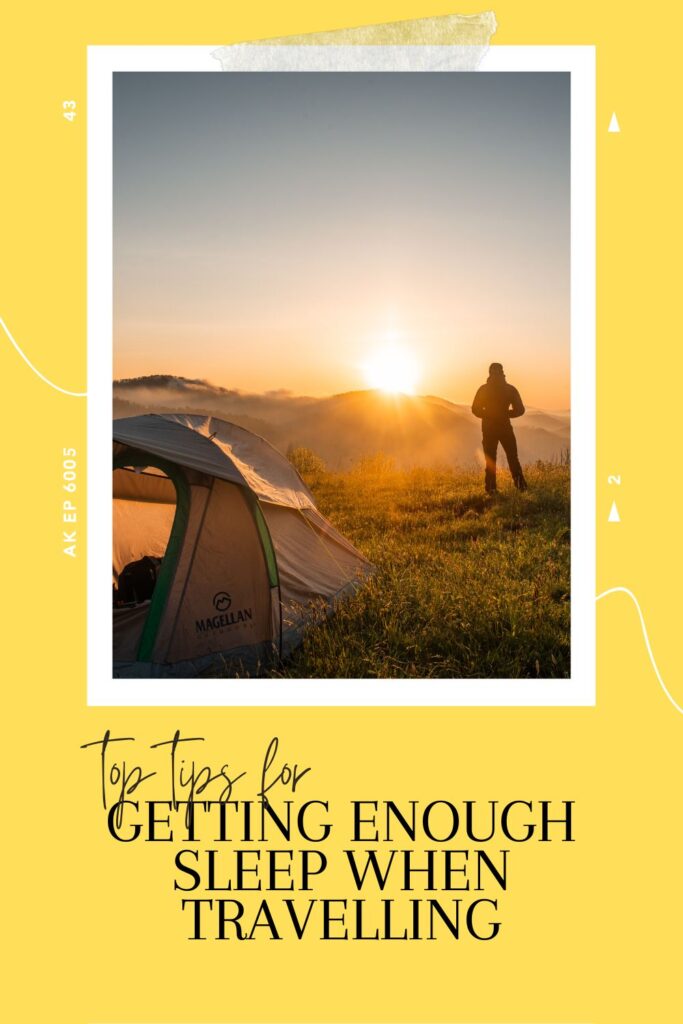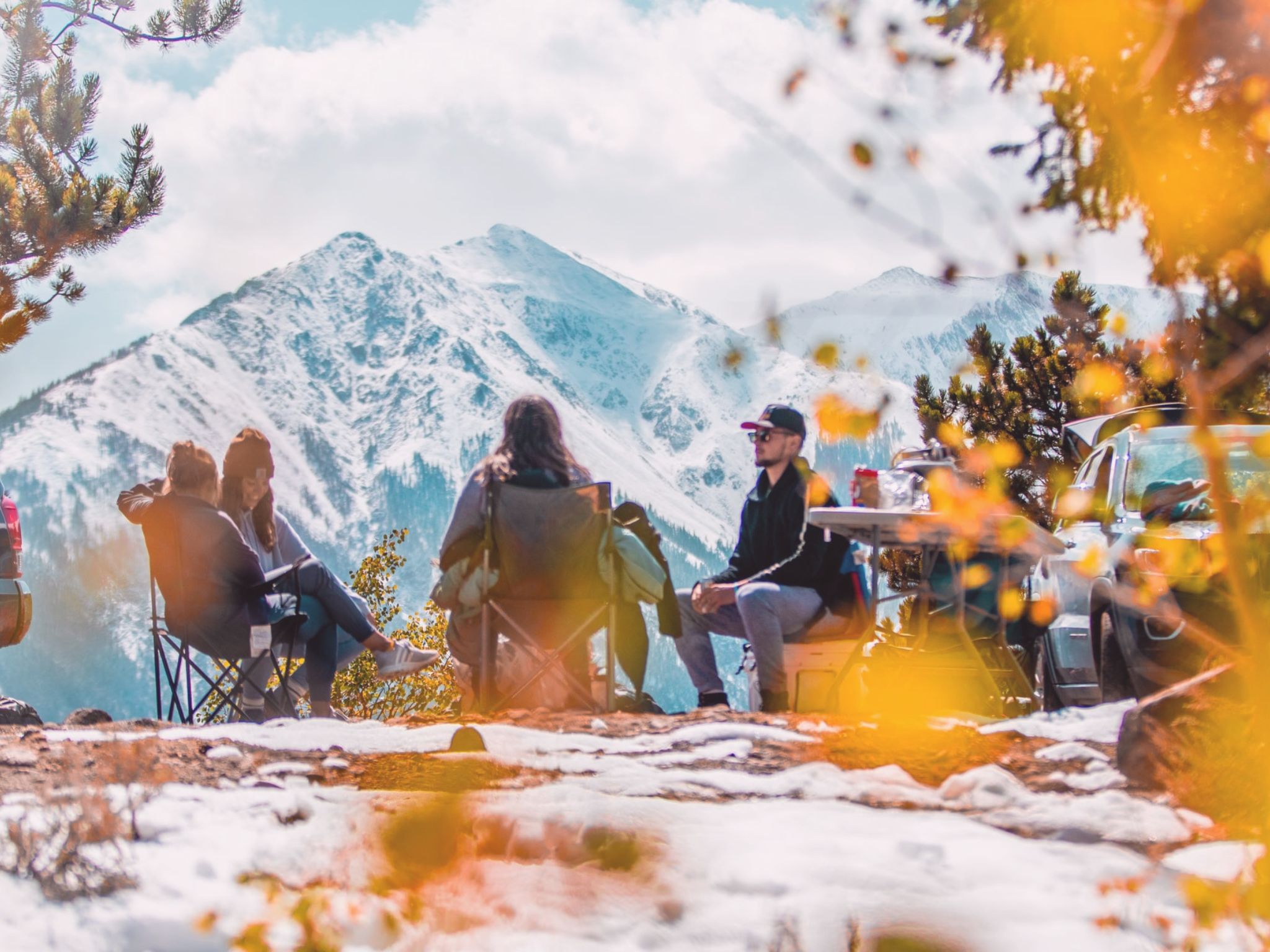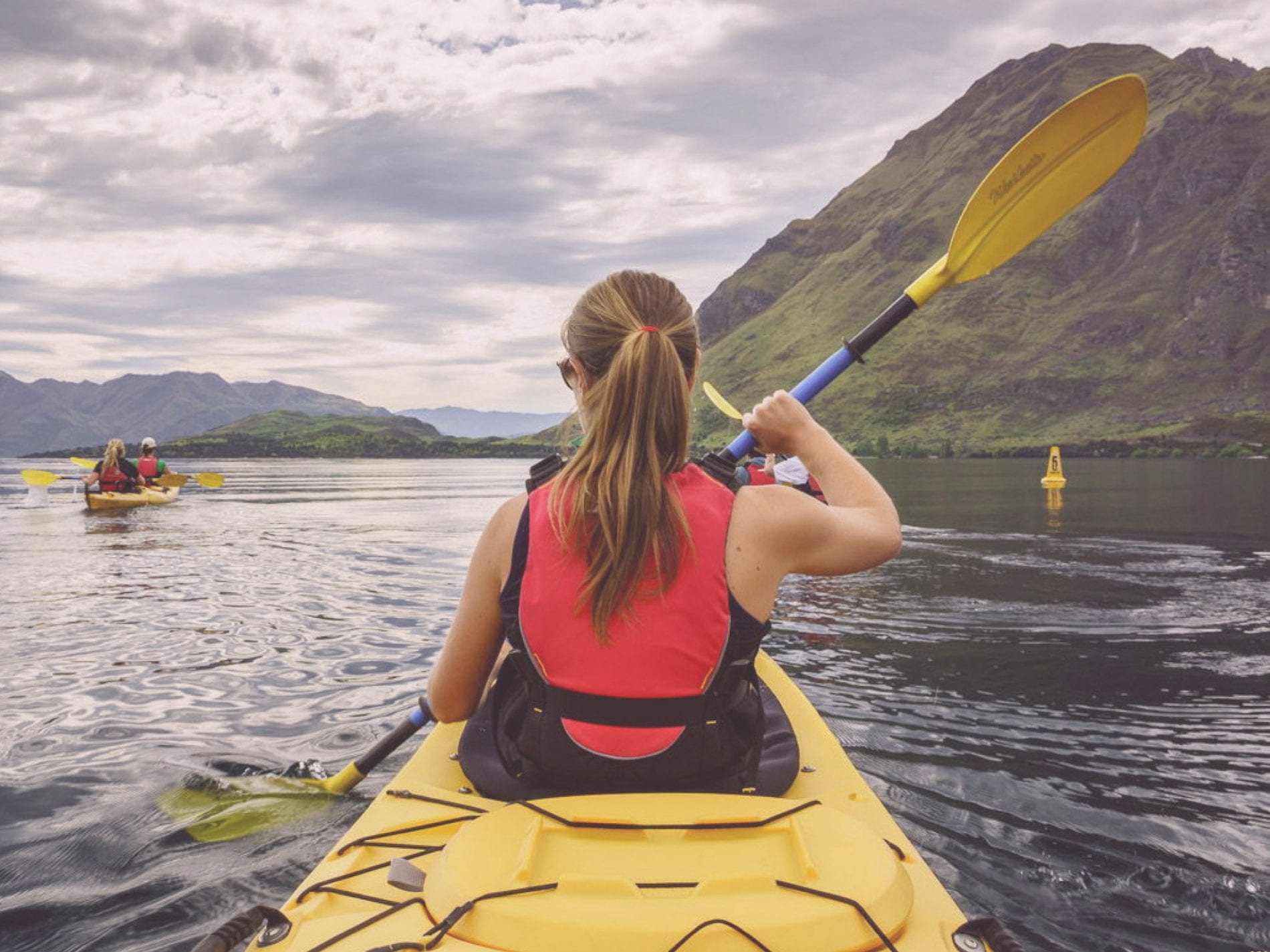For some travellers, falling asleep after a jam-packed day of adventures can be difficult. Getting adequate rest is important for those away from home as to enjoy the experience of travel it’s important to have enough energy to fully enjoy activities throughout the day.
To help you make the most of your travel adventures, I’ve pulled together some top tips for ensuring optimal sleep while enjoying an adventurous lifestyle.
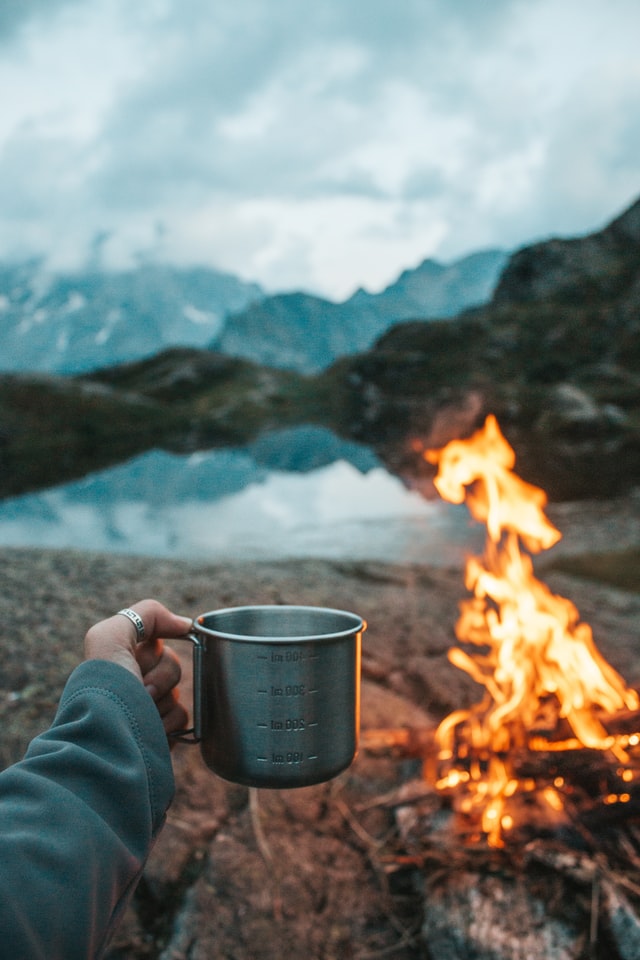
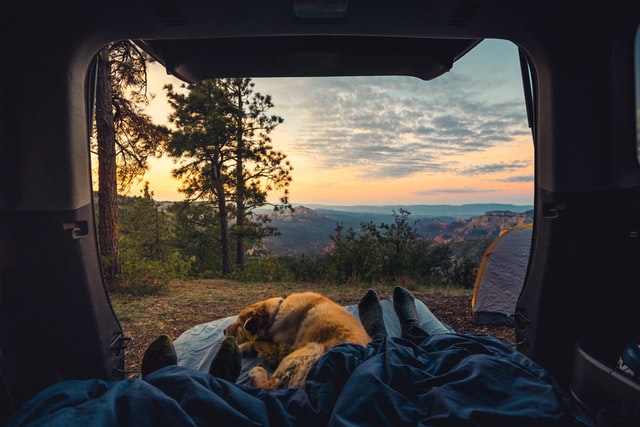
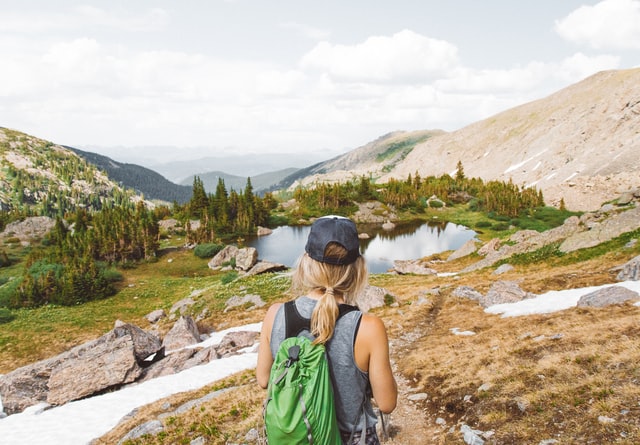
#1 Keep a consistent sleep schedule
Being at one with nature allows you to take a break from the fast-paced modern lifestyle. If you’re the on-the-go type with lots of work and personal obligations, you might find it hard to follow proper sleep schedules. Use your travel break as an opportunity to develop a healthy sleeping schedule and get your body used to self-initiated cues to rest.
Make sure to do all the strenuous, energy-demanding activities in the morning and practice a more relaxing ritual in the evening. You can try doing some stretches, going for a swim or taking a warm bath, and putting on some chilled-out music to soothe your mind and body.
#2 Invest in sleep machines and accessories
Sleep machines for travellers with sleep apnea
Sleep apnea is a common disorder in which a person experiences periodic breathing interruptions during sleep. If you suffer from sleep apnea, you’re well aware that this disorder is mildly annoying yet potentially dangerous.
Doctors advise people diagnosed with sleep apnea to have their own continuous positive airway pressure (CPAP) machines. Sleep apnea causes disruptive sleeping patterns, so it’s best to have one of these machines while travelling. While it can be a hassle to bring CPAP machines on the road, leaving them home poses a greater risk to your health. You can look for lighter CPAP machines that are compact enough for travel.
When shopping for a CPAP machine, you need to be careful about the brands you choose. There was a recent lawsuit that led to a recalled Philips sleep apnea machine due to risks of cancer and various respiratory impacts. There’s even a full list of Philips’ recalled sleep apnea devices.
Best sleep accessories for travellers
Investing in sleep accessories such as ear plugs and a sleep mask to block background noise and light that might interfere with your sleep can be a simple way to ensure a good night’s sleep when travelling.
If you find it hard to relax in new surroundings consider a lavender pillow spray or noise machine that plays calming nature sounds such as ocean waves and rain.
#3 Make sure you get enough vitamin D
Our bodies need vitamin D to facilitate normal immune system function which is essential when travelling as you will likely be exposed to new bugs and bacteria as part of your adventure.
Morning sunlight is a great source of Vitamin D that improves your body’s calcium and phosphate absorption. Getting sufficient sunlight can also help you get better sleep since it helps regulate your circadian rhythm and balances out your melatonin and serotonin levels.
READ MORE ADVENTURE TRAVEL GUIDES FROM WANDERLUSTERS

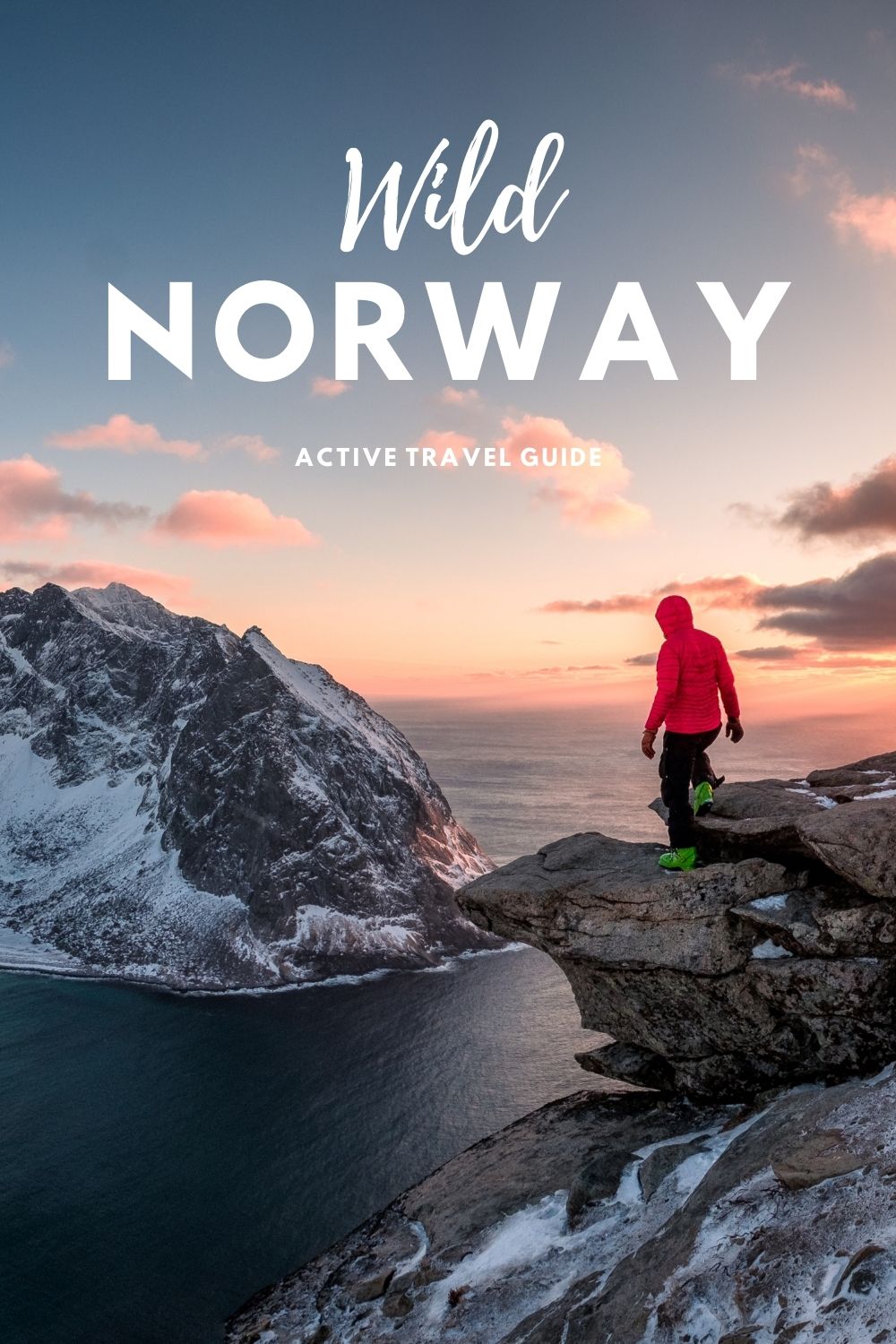
#4 Avoid stimulants like caffeine and nicotine before bedtime
Caffeine is a psychoactive substance found in a lot of food products and beverages, most commonly in coffee, soda, and energy drinks. Because caffeine gives you a burst of energy, experts recommend that you avoid it before bedtime to prevent light sleeping. The Sleep Health Foundation (SHF) of Australia recommends avoiding caffeine and alcohol intake for a minimum of 4 hours before going to bed. If coffee is already a part of your everyday routine, be sure to follow the US Food and Drug Administration’s (FDA) 400 mg recommendation for safe daily caffeine intake. This equates to around 4-5 cups of coffee per day.
Nicotine, on the other hand, is a stimulant that hinders you from falling and staying asleep. SHF recommends avoiding cigarettes altogether, but they also note that smoking at least 2 hours before sleeping should be the safest ballpark if you really can’t avoid it.
#5 Avoid lengthy daytime naps
Have you ever felt groggy after sleeping for hours? Do you feel even more tired than before you went to sleep? You might have experienced sleep inertia, which happens when your brain craves a complete sleep cycle. This usually occurs when you abruptly woke up from a deep sleep. A prolonged day nap followed by a period of grogginess can render you unable to sleep that night.
To make your sleep more restful, reserve the full cycle at night and limit your day naps to around 10-20 minutes only.
Get enough quality sleep and enjoy every day of your adventures
Not getting enough sleep results in a slew of problems ranging from slow reflexes to poor memory. You wouldn’t want these issues to keep you from enjoying your travels. Be sure to follow these tips to rest better ahead of the memorable adventure of your dreams.
PIN THIS TO YOUR TRAVEL PINTEREST BOARD NOW!
